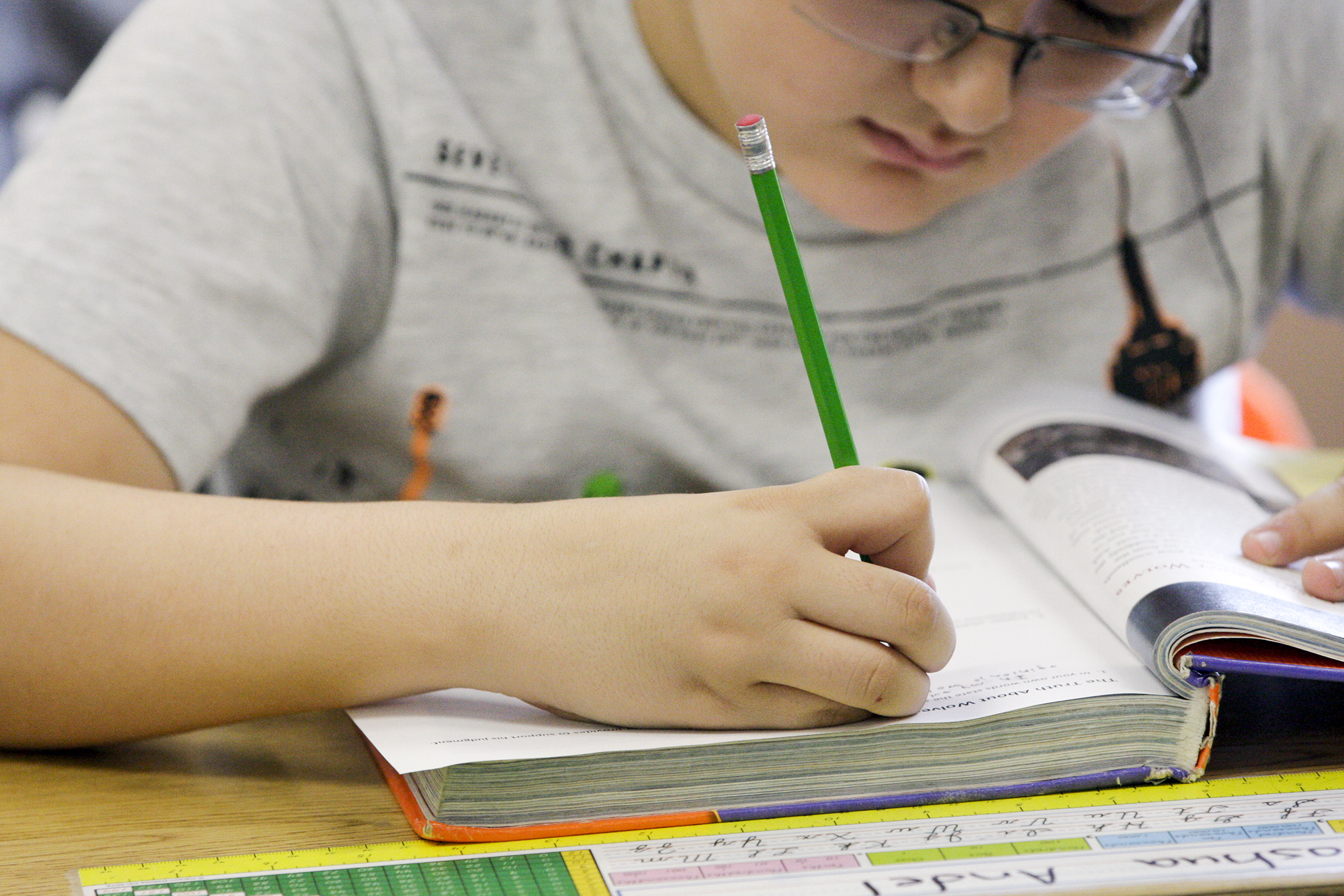Omnibus education finance bill includes hikes in cross subsidy aid, general education funding

Public education could see a $725 million boost in funding over the next biennium, with a focus on increasing general education funding and added investments to address districts’ special education cross subsidies.
The House Education Finance Committee began its work on the omnibus education finance bill Tuesday with a walkthrough of a proposed delete-all amendment to HF1065. Rep. Jim Davnie (DFL-Mpls), the committee chair, is the sponsor.
The committee plans to conclude the walkthrough and take member questions and public testimony Wednesday, with amendments and action planned for Thursday. The companion, SF960, awaits action by the Senate Education Finance and Policy Committee. Sen. Roger Chamberlain (R-Lino Lakes) is the sponsor.
The bill is comprised of several standalone proposals, as well as elements from the omnibus education policy bill, HF1081, and recommendations from Gov. Tim Walz’s Due North Education Plan.
“This is an early childhood to career investment in the future of Minnesota learners and in the future of Minnesota,” Davnie said.
He added that it aims to provide stable and predictable funding for public schools going forward by appropriating nearly $400 million during the 2022-23 biennium to increase the general education formula by 2% each fiscal year. It would also increase the formula allowance for fiscal years 2024 and 2025 by 0.5% per year. Beginning in fiscal year 2026, it would increase the basic formula allowance by the annual rate of inflation.
Additional significant investments include $70.1 million to reduce school districts’ special education cross-subsidies, $39.1 million to extend the 4,000 voluntary prekindergarten program seats that are set to expire, and $19.4 million to remove a cap on compensatory education revenue earned by schools with high concentrations of students from low-income families.
Seeking to better meet students’ academic and health needs, the bill would provide additional funding to increase the number of school support personnel, and would fund trauma-informed professional development opportunities for educators.
It also would bolster efforts to diversify the teaching workforce, Davnie said.
“We put significant, possibly even historic, investments in recruiting and retaining teachers of color and American Indian teachers,” he said. “Research has shown that increasing and retaining teachers of color and American Indian teachers in classrooms is important for everyone’s achievement.”
Other initiatives that would receive increased appropriations for the 2022-23 biennium include:
- $29 million for English language learner cross-subsidy reduction aid;
- $17.2 million to increase the number of student support personnel;
- $15.6 million for Grow Your Own grants;
- $13.3 million for paraprofessional training;
- $12 million for trauma-informed professional development grants;
- $10 million for full-service community schools;
- $6.7 million to the Department of Education for data submission modernization;
- $4 million for the Sanneh Foundation; and
- $1.6 million for aid to geographically large school districts with high transportation costs.
Notable policy provisions would:
- authorize a school board to renew a previously approved, unchanged referendum, following public testimony; including a process to revoke board approved referendum authority;
- establish a state goal to increase the percentage of teachers of color and American Indian teachers each year by 2%;
- require one-half credit of physical education and reduce the number of elective credits from seven to six-and-one-half;
- require districts’ World’s Best Workforce plans to include ethnic studies curriculum, and anti-racist and culturally sustaining curriculum;
- prohibit the suspension or expulsion of a student in kindergarten through grade three unless non-exclusionary discipline measures have been exhausted and there is an ongoing serious safety threat to the child or others;
- require a school district or charter school where a student with a seizure disorder is enrolled to have a seizure action plan; and
- require districts that participate in the national school lunch program to adopt a meals policy and provide meals in a respectful manner.
***
What’s in the bill?
The following are selected bills that have been incorporated in part or in whole into the omnibus education finance bill:
- HF217 (Hassan)
- HF292 (Frazier)
- HF725 (Youakim)
- HF843 (Stephenson)
- HF917 (Sandstede)
- HF951 (Richardson)
- HF1057 (Bennett)
- HF1144 (Feist)
- HF1422 (Mariani)
- HF1710 (Wolgamott)
- HF1742 (Berg)
Related Articles
Search Session Daily
Advanced Search OptionsPriority Dailies
Speaker Emerita Melissa Hortman, husband killed in attack
By HPIS Staff House Speaker Emerita Melissa Hortman (DFL-Brooklyn Park) and her husband, Mark, were fatally shot in their home early Saturday morning.
Gov. Tim Walz announced the news dur...
House Speaker Emerita Melissa Hortman (DFL-Brooklyn Park) and her husband, Mark, were fatally shot in their home early Saturday morning.
Gov. Tim Walz announced the news dur...
Lawmakers deliver budget bills to governor's desk in one-day special session
By Mike Cook About that talk of needing all 21 hours left in a legislative day to complete a special session?
House members were more than up to the challenge Monday. Beginning at 10 a.m...
About that talk of needing all 21 hours left in a legislative day to complete a special session?
House members were more than up to the challenge Monday. Beginning at 10 a.m...